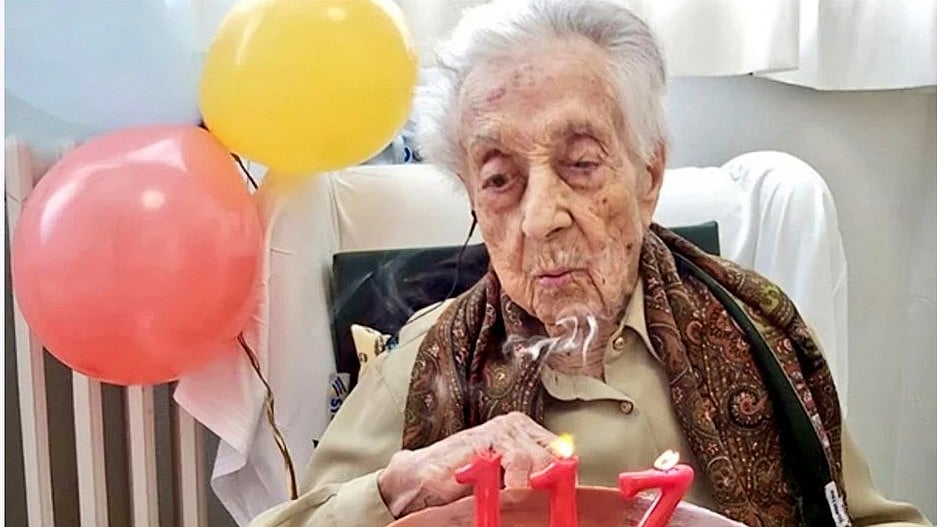World's Oldest Woman Lived For 117 Years: What Was Her Longevity Secret?
A new study published in Cell Reports Medicine has shed light on the remarkable genetic blueprint of Maria Branyas Morera, a US-born Spanish woman who lived for 117 years

When people meet supercentenarians, those rare individuals who surpass 110 years-they often ask the same question: What’s the secret to such a long life? Now, science is beginning to uncover answers hidden in their DNA.
A new study published in Cell Reports Medicine has shed light on the remarkable genetic blueprint of Maria Branyas Morera, a US-born Spanish woman who passed away in August 2024 at the age of 117 years and 168 days. At the time, she was the world’s oldest living person.
Unlocking the genetics of a supercentenarian
Researchers led by Dr. Manel Esteller at the Josep Carreras Leukaemia Research Institute in Barcelona collected samples of Branyas’ blood, saliva, urine, and stool. They then compared her genetic profile with 75 other Iberian women.
The findings suggest that Branyas’ extraordinary lifespan was due to a combination of protective genes and a disciplined lifestyle. Esteller told CNN that roughly half her longevity could be credited to genetics, while the other half was shaped by her daily habits.
Lifestyle choices that supported her health
Unlike many of her peers, Branyas never smoked or consumed alcohol. She remained active well into old age, preferring countryside living and daily walks of about an hour. Her diet followed a Mediterranean pattern, rich in olive oil, fresh produce, and, uniquely-three servings of yogurt every day.
Researchers believe this yogurt habit contributed to a youthful gut microbiome, reducing inflammation and supporting overall health. However, experts like Professor Claire Steves of King’s College London caution that yogurt alone wasn’t the magic key. Instead, her microbiome was likely a reflection of her robust health and balanced lifestyle.
Genes that guard against disease
Branyas carried several gene variants that offered protection against age-related decline, including genes linked to immune strength, fat metabolism, brain health, and heart disease prevention. These genetic advantages, combined with her lifestyle, helped her avoid many conditions that claim lives earlier.
The detailed analysis of Branyas’ genome provides scientists with valuable insights into healthy aging. While not everyone inherits such protective genes, her case highlights the powerful role of both nature and nurture in longevity, and offers clues that may one day help more people live healthier, longer lives.
RECENT STORIES
-
-
-
-
-